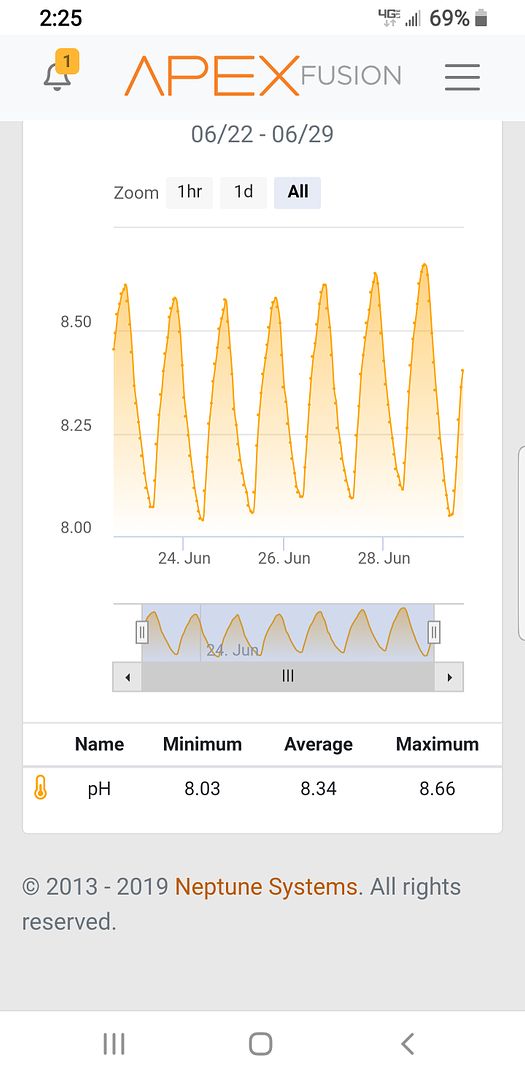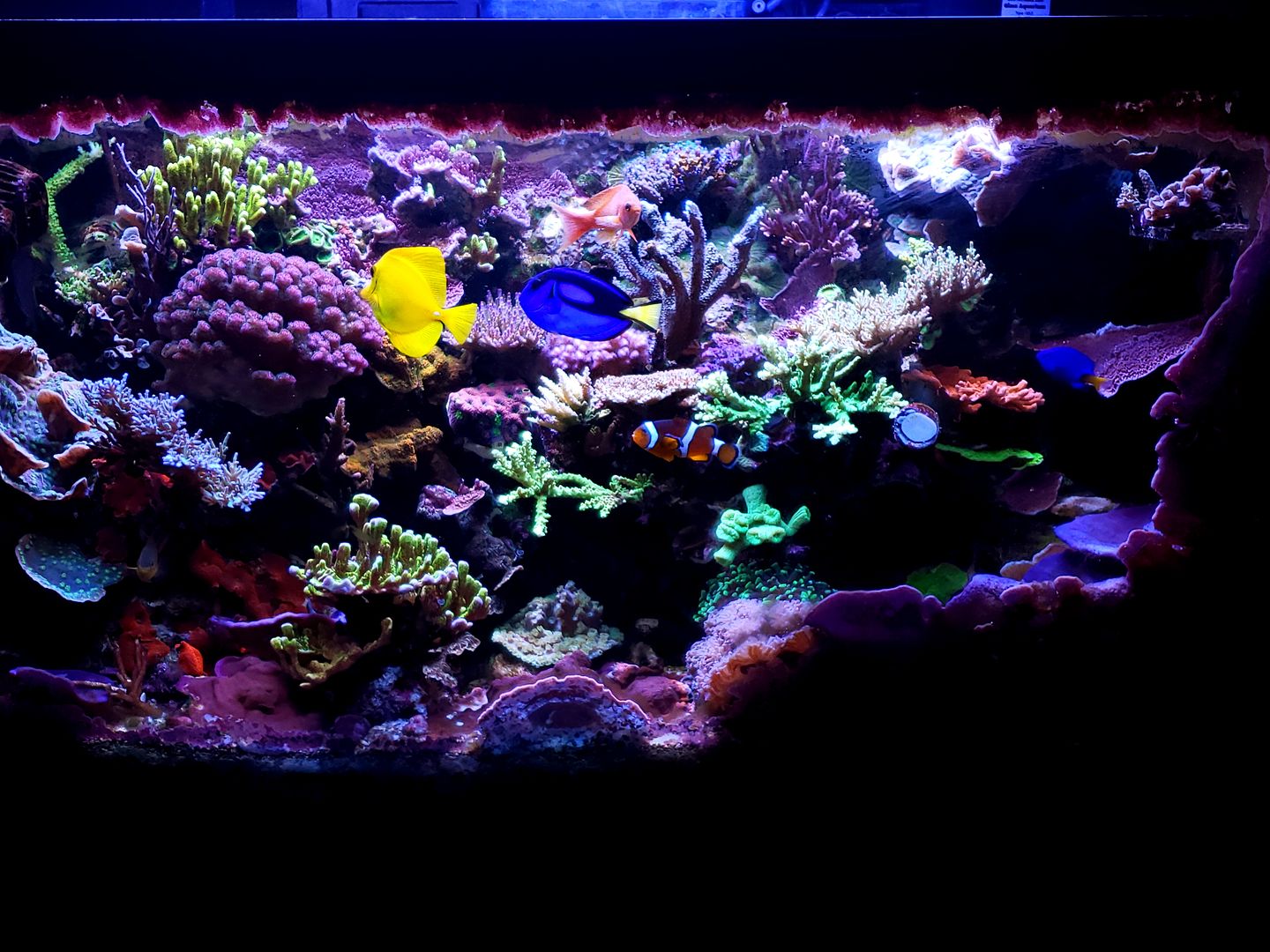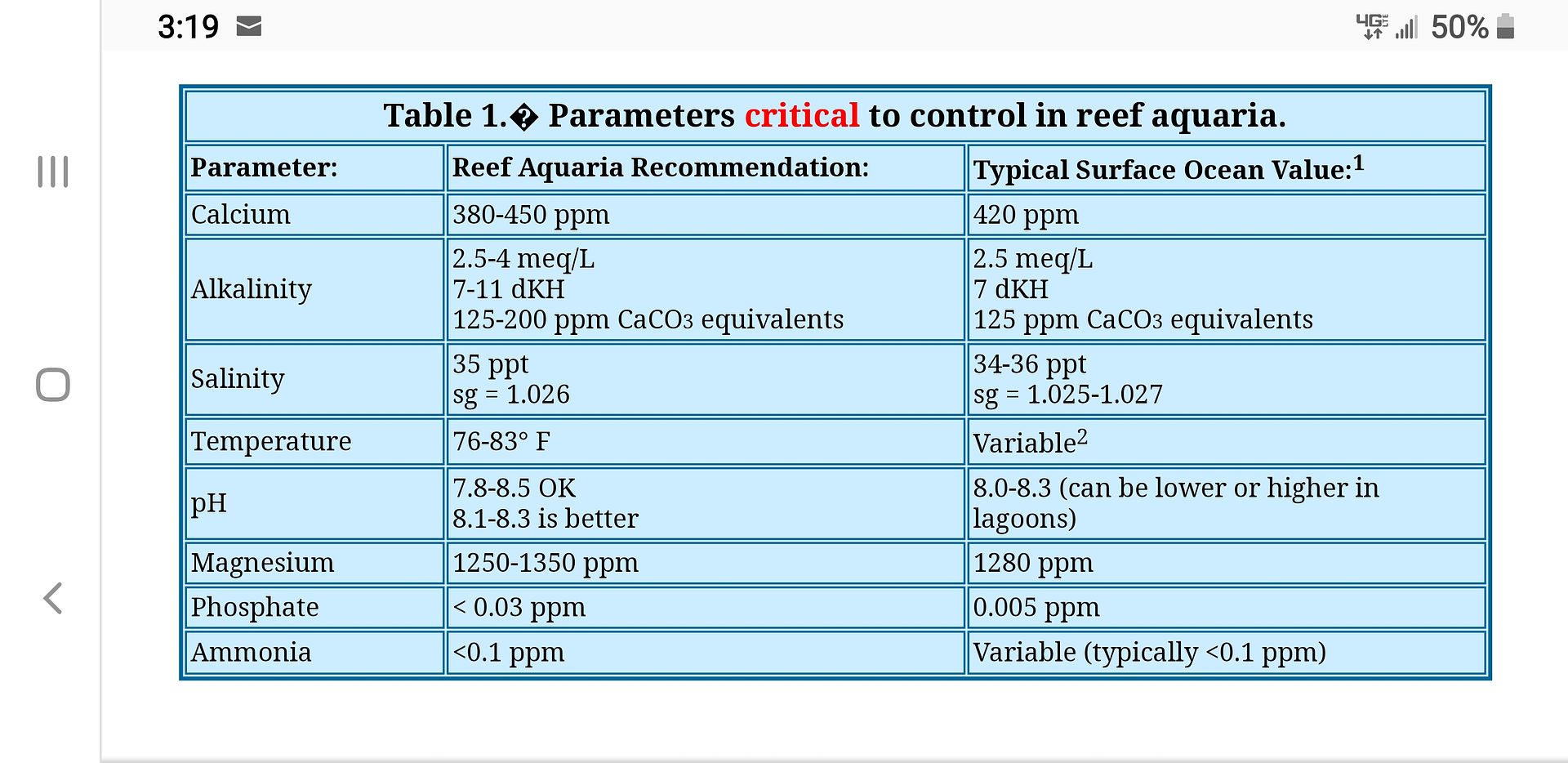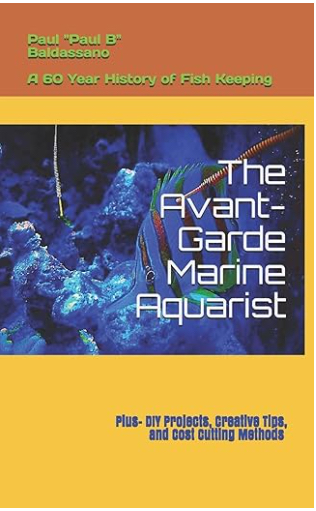I’m not asking for a scientific definition! I’ve read lots of those and they don’t stick in my 55 yr. old brain as long as I’d like.
My question is more pragmatic. My Ph swings about .3 on a daily basis. So When someone says 8.3 is a good Ph to aim for your tank, do they mean a daily average of 8.3 which would mean a swing from 8.15 - 8.45 or do they mean a peak of 8.3 which would mean a swing from 8.0 to 8.3?
Or something else?
(P.S. and yeah, i know you’re not supposed to ‘chase’ ideal ph levels....)
My question is more pragmatic. My Ph swings about .3 on a daily basis. So When someone says 8.3 is a good Ph to aim for your tank, do they mean a daily average of 8.3 which would mean a swing from 8.15 - 8.45 or do they mean a peak of 8.3 which would mean a swing from 8.0 to 8.3?
Or something else?
(P.S. and yeah, i know you’re not supposed to ‘chase’ ideal ph levels....)






